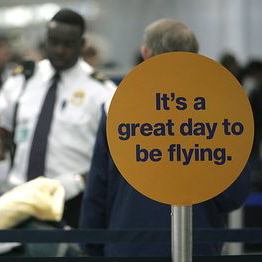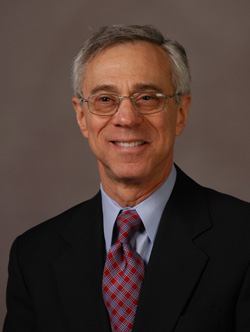 On the anniversary of 9/11, Peter checked in with Colonel Jack Jacobs, Congressional Medal of Honor recipient and military analyst for MSNBC.The questions that Peter raised are the ones that most Americans continue to ask.
On the anniversary of 9/11, Peter checked in with Colonel Jack Jacobs, Congressional Medal of Honor recipient and military analyst for MSNBC.The questions that Peter raised are the ones that most Americans continue to ask.
Find what Col. Jacobs had to say about the state of transportation security after 9/11.
Peter Greenberg: On the ninth anniversary 9/11, the questions have to be asked, and they will continue to be asked: What have we learned from it? Are we in better shape now? The statistics would argue that we are. We have not been attacked, if you want to forget about the Underwear Bomber and Richard Reid, since September 11, 2001. So where are we, and where do you think we should be?Col. Jack Jacobs: The implicit question is, are we safer? And the answer is, yes, we are safer. But the threats are wider and much more difficult to find. There are people who want to do us ill, and some of them actually live here inside the county. We are working much more effectively now with foreign intelligence, and that has a tendency to ferret out bad guys before they even get here.
 But we clearly still have an inability to do an effective job of processing information and turning it into intelligence. The Underwear Bomber is a great example. The guy’s father went to the Embassy and instead of talking to the sergeant or the marine who is out guarding the place, he talked to the CIA Chief of Station. He said, “my son is a terrorist.” But that information never got through the bureaucracy to make sure the guy never got on the plane. It is really a disgrace.
But we clearly still have an inability to do an effective job of processing information and turning it into intelligence. The Underwear Bomber is a great example. The guy’s father went to the Embassy and instead of talking to the sergeant or the marine who is out guarding the place, he talked to the CIA Chief of Station. He said, “my son is a terrorist.” But that information never got through the bureaucracy to make sure the guy never got on the plane. It is really a disgrace.
Part of the problem is that our response to 9/11 was to create more bureaucracy. That is not the way to do it. I know one of the people who is on the 9/11 Commission and I have castigated him thoroughly for the recommendation snatched up by George W. Bush and Congress—reinforced by this administration—that what we really needed was a Director of National Intelligence. The fact of the matter is we had one, called the Director of the CIA. We just didn’t make sure that he did his job.
So we are safer in many respects. But there are lots of things the bad guys can do, have been trying to do, and I’m afraid ultimately may be able to do to make our lives miserable.
PG: And of course if you take a look at the exponential growth of social media since 2001, I mean, I would be a bit surprised if we didn’t have sleeper cell on Facebook.
JJ: Bet on it, and it is almost undoubtedly more. There are plenty of them, and it is easy for them to coordinate. I don’t want to say run for the hills, or anything like that. We do have quite effective means of finding these people out, but we’ve got a country of 310 million people. Nobody wants to have the government keep an eye on everybody all the time.
 It’s difficult. Let me give you an example: a couple of years ago, for a period that extended from just before Christmas to just after New Years at Chicago’s O’Hare, zero percent of the luggage that went into cargo compartments was X-rayed. Not a small amount, but zero. The guys who were running it were taking a vacation, and the guys who took their place at the TSA lost a slip that told them what to do. As a result, none of the baggage that went into any airplane going both into or out of O’Hare was X-rayed for a period of at least two and a half weeks.
It’s difficult. Let me give you an example: a couple of years ago, for a period that extended from just before Christmas to just after New Years at Chicago’s O’Hare, zero percent of the luggage that went into cargo compartments was X-rayed. Not a small amount, but zero. The guys who were running it were taking a vacation, and the guys who took their place at the TSA lost a slip that told them what to do. As a result, none of the baggage that went into any airplane going both into or out of O’Hare was X-rayed for a period of at least two and a half weeks.
PG: I’ve always made this argument, and please take issue with me if you disagree: Nine years after September 11, al Qaeda is either 3,000 determined fanatical terrorists, or three guys in a garage in Brooklyn.
JJ: It’s most likely it’s somewhere in between. The good news is that we have fragmented al Qaeda. It’s not the hierarchical, finely tuned, well-led, disciplined organization it used to be. That is the good news, but it is also the bad news. Many countries that did not have them, have them now. It’s tough to find these guys, and it is getting more and more difficult which is why cooperation with foreign intelligence is vitally important. And we’re doing better at that.
By Peter Greenberg for Peter Greenberg Worldwide Radio.
Related links on PeterGreenberg.com:












